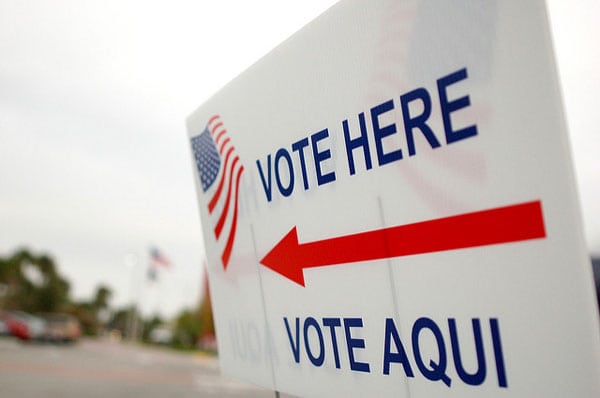
September 26, 2018; New York Times Magazine
As the United States approaches the midterm elections, campaigns to increase voter turnout are in high gear. Liberal filmmaker Michael Moore has made a get-out-the-vote message the central theme of his new documentary, 11/9. And no wonder: Voter turnout regularly drops in midterm elections, a trend noticed since the 1840s. In 2014, the midterm turnout was the lowest in 70 years—just 36.4 percent of the voting-eligible population.
To counteract voter drives by progressives like Moore, claims of erroneous election results due to illegal voting long have been a battle cry by conservative politicians. For example, Donald Trump repeatedly insisted he would have won the popular vote had it not been for “millions” of illegal votes. (This, despite the fact that a New York Times investigation could document only four cases of people committing voter fraud during the 2016 general election. That’s 0.000002 percent of the ballots cast in the race for the White House.)
As suggested by the average midterm numbers, however, far more significant challenges to democracy are low turnout and the effective disenfranchisement of large swaths of the population—particularly people of color. In fact, the United States is behind most of its peers in the Organization for Economic Cooperation and Development (OECD). The United States placed just 26th among the 32-member countries in the most recent national elections. (This is in part due to the fact that in the United States, unlike most of the other countries, registration is an individual responsibility rather than a social one. Only about 64 percent of the US voting-age population was registered in 2016, compared with 91 percent in Canada and the UK and 96 percent in Sweden.)
Many types of laws and regulations work to discourage or prohibit some citizens from voting, particularly lower-income people of color—ranging from requirements for IDs that are inaccessible to many citizens to limits on early and absentee voting. In the first six months of 2017 alone, according to a recent report by the Brennan Center for Justice, at least 99 bills to restrict voting rights were introduced in 31 states.
One of the most entrenched restrictions on voting rights is limits on citizens who are imprisoned or who have prison records. It’s no coincidence that this serves as an effective way to limit voting rights among black people at the same time. In 2016, blacks represented 12 percent of the US adult population but 33 percent of those sentenced to prison. In contrast, whites accounted for 64 percent of adults but 30 percent of prisoners.
Sign up for our free newsletters
Subscribe to NPQ's newsletters to have our top stories delivered directly to your inbox.
By signing up, you agree to our privacy policy and terms of use, and to receive messages from NPQ and our partners.
However, since the framers of the US Constitution didn’t include the right to vote in the document, such restrictions were put into place early, putting down deeper roots than almost any other kind of voter suppression. Thus, despite the belief in redemption and second chances cited as an American tradition by former President George W. Bush, more than 6 million citizens have lost the right to vote because of criminal records. This flies in the face of research showing that most formerly incarcerated people manage to overcome the substantial hurdles they face and “go straight.”
Fortunately, effective work is being done to roll back these restrictions, including in Florida, where more than 1.5 million of such disenfranchised individuals live, higher than in any other state. In fact, more than 20 percent of Florida’s black voting-age population can’t vote, according to the nonpartisan Sentencing Project. But now, a ballot initiative would, if approved, restore the right to vote to people with a felony conviction who have completed their sentences. (The initiative excludes, however, those convicted of murder or sex offenses.) At the beginning of this year, the state certified the initiative, called Amendment 4, for the November ballot. Like any change to Florida’s constitution, Amendment 4 needs 60 percent of the vote to pass.
Two polls, one conducted by the University of North Florida and a second several months later by two collaborating firms, showed Amendment 4 polling above 70 percent. Support was highest among Democrats and independents, of course. Surprisingly, in the second survey, the initiative also won support among more than 60 percent of Republicans.
This type of criminal justice reform is becoming one of the rare examples of bipartisan agreement, despite the parallel push to restrict voting overall. In fact, since 2000, around 10 states have loosened or lifted barriers that prevent former felons from voting. Today, only Florida, Iowa, and Kentucky disenfranchise formerly incarcerated people across the board.
Soon, if the initiative passes, there will be one less state that curtails both voting rights and second chances, at least for formerly incarcerated persons.—Pam Bailey













